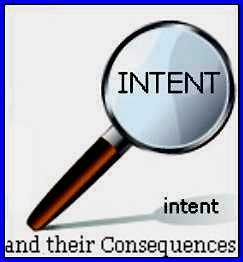Under s. 52 of the WESA Legislation , the onus of disproving undue influence has shifted to the person who has received the gift under the will where a position of domination and dependence exists between the will maker and the beneficiary.
Prior to the introduction of this section it was difficult if not impossible to successfully challenge the validity of the will on the grounds of undue influence. This was caused partly because the person challenging the will board the legal burden of proving the undue influence, which was usually difficult at best to do, and if one failed in one’s attempt to prove it, the court would punish the plaintiff for failing to in effect proof of fraud by awarding special costs.
Undue influence by its very nature is typically exerted in privacy, away from the will maker’s family members or friends, often under threat of being put into an old folks home and thus rarely ever independently witnessed.
Section 52 however creates a presumption of undue influence where certain types of relationships exist, which are typically those of the will maker being in a position of dependence or submission to another person, often a caregiver. Once that relationship of dependence on another person is established, the party defending the wills validity then has the burden to prove that he or she did not exercise undue influence over the will maker.
The shift in the burden of proof is of great benefit to plaintiffs counsel who often had lots of suspicion or even corroborating evidence, but the test of undue influence is one of coercion, not just influence, and thus it was very difficult to prove.
The fact that the burden of proof has now shifted with respect to the preparation of wills, will hopefully exert more pressure on the lawyers and notaries drafting wills to be moral alert than ever to identify what lawyers refer to ”red flags” to watch for.
In my accompanying paper that was submitted in 2006 to the BCL I I set out approximately 17 examples of
suspicious circumstances for the will maker to be on guard for.
Typically a few of the types of “red flags” that the will maker should be looking for are:
- Will instructions that seemed totally out of character or unreasonable in light of the family circumstances;
- Significant or poorly explained radical changes in the beneficiaries from a prior will;
- Physical or mental health concerns that might lead to the will maker being more susceptible to undue influence;
- Secrecy
- Unexplained haste for the wills preparation and execution;
- The too friendly friend or beneficiary that goes to great effort to explain how much he or she assists the will maker, (and thus deserves to be a beneficiary).
The list is long and varied, and the notary or lawyer should only take instructions from the will maker with no one else in the room, and should take detailed notes of the interview, including a review of all of the various red flag matters, and written notations as to the mental competency of the will maker. These notes should be preserved in case of subsequent litigation.
S. 52. Of WESA States:
In an action, if a person claims that a will or any provision of it resulted from another personbeing in a position where the potential for dependence or domination of the will-maker was present, and using that position to unduly influence the will-maker to make the will or the provision of it that is challenged and establishes that the other person was in a position where the potential for dependence or domination of the will-maker was present, the party seeking to defend the will or the provision of it that is challenged or to uphold the gift has the onus of establishing that the person in the position where the potential for dependence or domination of the will-maker was present did not exercise undue influence over the will-maker with respect to the will of the provision of it that is challenged.
The current state of the law as enunciated in Vout v. Hay ( 1995) 7 E.T.R. I2d) 2 S.C.R. 876, is that if the validity of a will is challenged on the ground of undue influence than the onus is upon the person alleging undue influence to prove that allegation.
There is a distinction to be borne in mind between producing sufficient evidence to satisfy the Court that a suspicion raised by the circumstances surrounding the execution of the will have been dispelled and producing the evidence necessary to establish an allegation of undue influence. The former task lies upon the proponents of the will, the latter is a burden assumed by those who are attacking the will and can only be discharged by proof of the existence of an influence acting upon the mind of the testator of the kind described by Viscount Haldane in Craig v. Lamoureux [[1920] A.C. 349], at 357 where he says:
Undue influence, in order to render a will void, must be an influence which can justly be described by a person looking at the matter judicially to have caused the execution of a paper pretending to express a testator’s mind, but which really does not express his mind, but something else which he did not really mean.
The language of s. 52 seems to reflect the Supreme Court of Canada’s discussion of dominate relationships found in the decision of Geffen v. Goodman Estate, (1991) 81 D.L.R.(4th) 211 ( S.C.C.).
In that decision, which was a case dealing with an inter vivos trust, the Court stated:
“What then is the nature of the relationship that must exist in order to give rise to a presumption of undue influence? Bearing in mind the decision in Morgan, its critics and the divergence in the jurisprudence which it spawned, it is my opinion that concepts such as “confidence” and “reliance” do not adequately capture the essence of relationships which may give rise to the presumption. I would respectfully agree with Lord Scarman that there are many confidential relationships that do not give rise to the presumption just as there are many non-confidential relationships that do. It seems to me rather that when one speaks of “influence” one is really referring to the ability of one person to dominate the will of another, whether through manipulation, coercion, or outright but subtle abuse of power. I disagree with the Court of Appeal’s decision in Goldswortby v. Brickell, supra, that it runs contrary to human experience to characterize relationships of trust or confidence as relationships of dominance. To dominate the will of another simply means to exercise a persuasive influence over him or her. The ability to exercise such influence may arise from a relationship of trust or confidence but it may arise from other relationships as well. The point is that there is nothing per se reprehensible about persons in a relationship of trust or confidence exerting influence, even undue influence, over their beneficiaries. It depends on their motivation and the objective they seek to achieve thereby.
S. 52 of WESA goes along ways to promoting success in allegations of undue influence in wills involving persons in a position of domination over the will maker. It is a rebuttable presumption that caregivers and others in such roles of domination should not fear if they are legitimate beneficiaries in every sense of the word.




